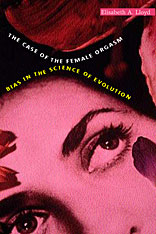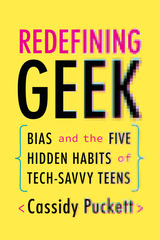
Why women evolved to have orgasms--when most of their primate relatives don't--is a persistent mystery among evolutionary biologists. In pursuing this mystery, Elisabeth Lloyd arrives at another: How could anything as inadequate as the evolutionary explanations of the female orgasm have passed muster as science? A judicious and revealing look at all twenty evolutionary accounts of the trait of human female orgasm, Lloyd's book is at the same time a case study of how certain biases steer science astray.
Over the past fifteen years, the effect of sexist or male-centered approaches to science has been hotly debated. Drawing especially on data from nonhuman primates and human sexology over eighty years, Lloyd shows what damage such bias does in the study of female orgasm. She also exposes a second pernicious form of bias that permeates the literature on female orgasms: a bias toward adaptationism. Here Lloyd's critique comes alive, demonstrating how most of the evolutionary accounts either are in conflict with, or lack, certain types of evidence necessary to make their cases--how they simply assume that female orgasm must exist because it helped females in the past reproduce. As she weighs the evidence, Lloyd takes on nearly everyone who has written on the subject: evolutionists, animal behaviorists, and feminists alike. Her clearly and cogently written book is at once a convincing case study of bias in science and a sweeping summary and analysis of what is known about the evolution of the intriguing trait of female orgasm.

A surprising and deeply researched look at how everyone can develop tech fluency by focusing on five easily developed learning habits.
Picture a typical computer geek. Likely white, male, and someone you’d say has a “natural instinct” for technology. Yet, after six years teaching technology classes to first-generation, low-income middle school students in Oakland, California, Cassidy Puckett has seen firsthand that being good with technology is not something people are born with—it’s something they learn. In Redefining Geek, she overturns the stereotypes around the digitally savvy and identifies the habits that can help everyone cultivate their inner geek.
Drawing on observations and interviews with a diverse group of students around the country, Puckett zeroes in on five technology learning habits that enable tech-savvy teens to learn new technologies: a willingness to try and fail, management of frustration and boredom, use of models, and the abilities to use design logic and identify efficiencies. In Redefining Geek, she shows how to measure and build these habits, and she demonstrates how many teens historically marginalized in STEM are already using these habits and would benefit from recognition for their talent, access to further learning opportunities, and support in career pathways. She argues that if we can develop, recognize, and reward these technological learning habits in all kids—especially girls and historically marginalized racial and ethnic groups—we can address many educational inequities and disparities in STEM.
Revealing how being good with technology is not about natural ability but habit and persistence, Redefining Geek speaks to the ongoing conversation on equity in technology education and argues for a more inclusive technology learning experience for all students.
READERS
Browse our collection.
PUBLISHERS
See BiblioVault's publisher services.
STUDENT SERVICES
Files for college accessibility offices.
UChicago Accessibility Resources
home | accessibility | search | about | contact us
BiblioVault ® 2001 - 2026
The University of Chicago Press









